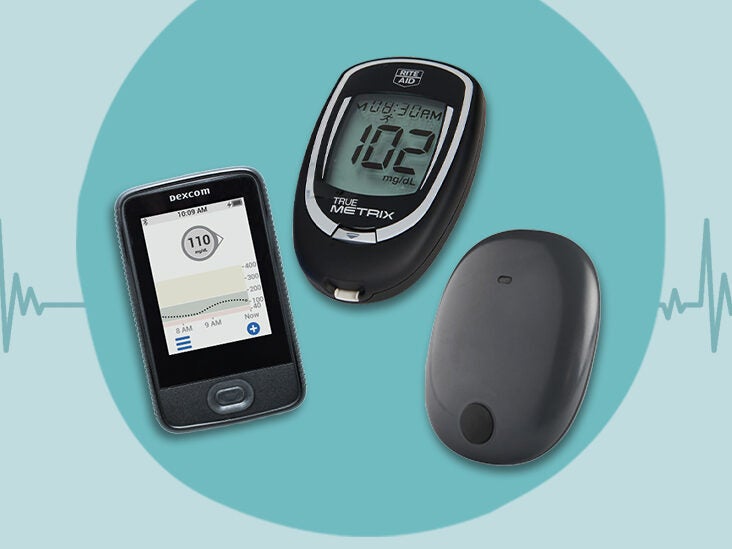-
Digital Health News Highlights of 2023
Digital Health News Highlights of 2023 AI’s Growing Role Artificial intelligence continued to make significant strides in healthcare in 2023. AI-powered algorithms demonstrated impressive accuracy in diagnosing various diseases, from cancer to eye conditions. Additionally, AI tools were used to create personalized treatment plans based on individual patient data, improving outcomes. Moreover, AI accelerated drug…
-
Biohacking Technology and Monitoring Devices: Revolutionizing Health and Wellness
In an era where technological advancements are shaping every aspect of our lives, it’s no surprise that they have also made a significant impact on our health and wellness practices. The emergence of biohacking technology and monitoring devices has opened up new avenues for individuals to take control of their wellbeing and optimize their physical…
-
A Woman’s Guide to Achieving Optimal Brain Focus and Mental Health. Unlocking Your Brain’s Potential.
A Woman’s Guide to Achieving Optimal Brain Focus and Mental Health. Unlocking Your Brain’s Potential.
When it comes to managing diabetes, knowing your blood sugar levels is crucial. In order to ensure that your levels are under control, you’ll need to regularly check them using a blood sugar test. But with so many different types of tests available, which one is the most accurate?
In this article, we’ll explore the different types of blood sugar tests and compare their accuracy levels. By the end, you’ll have a better understanding of which test is right for you and how to make sure you’re getting the most accurate results possible. So let’s dive in and get started!
Two blood sugar tests are commonly used: the fasting blood sugar test and the A1C test.
The fasting blood sugar test measures your blood sugar level after an 8-hour fast, while the A1C test provides an average of your blood sugar levels over the past 2-3 months. The A1C test is considered more accurate as it provides a broader picture of your blood sugar control.
However, both tests are important in managing diabetes and should be done regularly.
Table of Contents

Which Blood Sugar Test is More Accurate?
Blood sugar tests are crucial for people with diabetes to monitor their blood glucose levels. There are various tests available to measure blood sugar levels, but which one is the most accurate? In this article, we’ll discuss the most commonly used blood sugar tests and their accuracy.
1. Fasting Plasma Glucose Test
The fasting plasma glucose (FPG) test measures the blood sugar levels after an overnight fast of at least 8 hours. FPG is a standard test used to diagnose diabetes and prediabetes. The FPG test is the most common blood sugar test used to monitor diabetes management. This test is accurate as it measures the glucose levels in the blood, which reflects the average glucose level over the past 2-3 months.
However, there are some limitations of the FPG test. The results of the test may be affected by factors such as stress, illness, or medication. The FPG test can also produce false-positive or false-negative results.
2. Oral Glucose Tolerance Test
The Oral Glucose Tolerance Test (OGTT) measures blood sugar levels after fasting and after drinking a sugary drink. This test is more accurate than the FPG test as it can detect prediabetes and diabetes at an earlier stage. OGTT is also used during pregnancy to diagnose gestational diabetes.
The OGTT test has some limitations as well. The test is time-consuming as it requires multiple blood draws over a few hours. The test is also more expensive than the FPG test.
3. Continuous Glucose Monitoring
Continuous glucose monitoring (CGM) is a relatively new technology that measures glucose levels in the interstitial fluid (fluid between cells) every few minutes. CGM is more accurate than the FPG and OGTT tests as it provides real-time data and can detect fluctuations in glucose levels.
CGM does have some limitations, such as the need for regular calibration and the cost of the device. CGM can also produce false readings due to factors such as dehydration and certain medications.
4. Self-Monitoring Blood Glucose
Self-monitoring blood glucose (SMBG) is a test that measures blood sugar levels at home using a glucose meter and test strips. SMBG is an essential tool for people with diabetes to monitor their blood sugar levels and adjust their medication and lifestyle accordingly.
SMBG is less accurate than the other tests mentioned above, but it is still an important tool for diabetes management. The accuracy of SMBG can be affected by factors such as the quality of the glucose meter, the technique used to collect the blood sample, and the timing of the test.
How much difference between glucometer and lab test?
When it comes to measuring blood sugar levels, there may be a difference between the readings obtained from a glucometer (a handheld device used for self-monitoring blood glucose) and a lab test conducted in a controlled environment. Generally, lab tests are considered more accurate as they are conducted by trained professionals using sophisticated equipment. Glucometers, on the other hand, provide convenient and immediate results but may have a margin of error.
It’s important to note that the difference between glucometer readings and lab test results can vary depending on several factors, including the quality and calibration of the glucometer, the technique used to collect the blood sample, and individual variations. It’s advisable to consult with your healthcare provider about any significant discrepancies between glucometer readings and lab test results to ensure proper management and treatment of diabetes.
Normal blood sugar levels chart
| Fasting Blood Sugar (FBS) Levels: | Normal: 70-99 mg/dL (3.9-5.5 mmol/L) |
| Postprandial Blood Sugar Levels (2 hours after a meal): | Normal: Less than 140 mg/dL (7.8 mmol/L) |
| Hemoglobin A1c (HbA1c) Levels: | Normal: Below 5.7% (39 mmol/mol) Prediabetes: 5.7-6.4% (39-46 mmol/mol) Diabetes: 6.5% (48 mmol/mol) or higher |
It’s important to note that these values are general guidelines, and target ranges may vary depending on individual circumstances and recommendations from healthcare professionals. For people with diabetes, target ranges may be personalized based on factors such as age, overall health, and diabetes management goals. It’s recommended to consult with your healthcare provider to determine your specific target blood sugar levels.
Two different blood sugar readings within seconds
It is uncommon to have two significantly different blood sugar readings within seconds. Blood sugar levels can fluctuate, but drastic variations within such a short time frame are unusual. If you obtain two vastly different readings using the same blood sample and testing method, it’s recommended to take the following steps:
- Double-check the testing process: Ensure that you followed the instructions correctly, used the appropriate test strips, and that the glucometer or testing device is in proper working condition.
- Test again: If you receive inconsistent readings, it’s advisable to perform another blood sugar test using a fresh blood sample. Make sure to clean the testing site properly before collecting the blood sample.
- Consult a healthcare professional: If you continue to experience significant discrepancies in your blood sugar readings or have concerns about the accuracy of your readings, it’s best to consult with a healthcare professional. They can provide guidance, perform further tests if necessary, and help determine the most accurate way to monitor your blood sugar levels.
Remember, blood sugar levels can be affected by various factors such as diet, physical activity, stress, medications, and underlying health conditions. Regular monitoring and open communication with your healthcare provider are essential for accurate blood sugar management.
What can cause false high blood sugar readings?
Several factors can lead to false high blood sugar readings. It’s important to be aware of these potential causes to ensure accurate monitoring and management of blood sugar levels. Here are some common factors that can cause false high blood sugar readings:
- Contaminated testing equipment: If the testing equipment, such as the glucose meter or test strips, is contaminated or not properly cleaned, it can give inaccurate results. Make sure to follow the manufacturer’s instructions for cleaning and maintaining your testing equipment.
- Improper blood sample collection: Insufficient cleaning of the testing site or inadequate blood sample size can affect the accuracy of the reading. It’s crucial to clean the testing site properly and use an adequate blood sample as per the instructions provided.
- Interference from substances: Certain substances, such as medications, high levels of vitamin C, or non-glucose sugars, can interfere with blood sugar readings and lead to false high results. It’s important to inform your healthcare provider about any medications or supplements you are taking to determine if they might affect your blood sugar readings.
- Technical errors: Glucose meters and testing devices may experience technical errors or malfunctions that can result in false high readings. Regularly calibrating and maintaining your equipment, as well as using reputable and reliable brands, can help minimize the risk of technical errors.
- High stress levels or illness: Stress and certain illnesses can cause the release of hormones that raise blood sugar levels temporarily. If you’re experiencing high stress or are unwell, it’s important to consider that it may affect your blood sugar readings.
- Inaccurate timing: If you consume food or drink shortly before a blood sugar test, it can result in a temporary spike in blood sugar levels. To obtain accurate fasting blood sugar readings, it’s necessary to fast for the recommended time period as advised by your healthcare provider.
It’s essential to discuss any concerns about false high blood sugar readings with your healthcare provider. They can provide guidance, evaluate potential causes, and recommend appropriate steps for accurate monitoring and management of your blood sugar levels.
What level of blood sugar is dangerous?
Dangerous blood sugar levels can vary depending on individual circumstances and whether a person has diabetes or not. Generally, extremely high or low blood sugar levels can be concerning and may require immediate medical attention. Here are some guidelines to consider:
- High blood sugar (hyperglycemia): In individuals without diabetes, blood sugar levels above 200 mg/dL (11.1 mmol/L) may be considered high. However, for individuals with diabetes, target ranges may vary, and it’s important to follow the guidance of your healthcare provider. Very high blood sugar levels, such as those exceeding 400 mg/dL (22.2 mmol/L) or accompanied by symptoms such as excessive thirst, frequent urination, blurry vision, or confusion, can be dangerous and may indicate a medical emergency.
- Low blood sugar (hypoglycemia): For individuals without diabetes, blood sugar levels below 70 mg/dL (3.9 mmol/L) may be considered low. However, people with diabetes may have individualized target ranges, and hypoglycemia thresholds can vary depending on factors such as age, overall health, and diabetes management plan. Severe hypoglycemia, characterized by blood sugar levels below 54 mg/dL (3.0 mmol/L) or causing significant symptoms such as dizziness, confusion, seizures, or loss of consciousness, can be dangerous and require immediate attention.
It’s crucial for individuals with diabetes to work closely with their healthcare providers to establish target blood sugar ranges and understand the specific thresholds that may be dangerous for them. Regular blood sugar monitoring, adherence to prescribed medications or insulin regimens, and prompt management of high or low blood sugar levels are essential for overall health and diabetes management.
If you experience blood sugar levels that are consistently outside the recommended target ranges or have concerns about dangerous blood sugar levels, it’s important to consult with a healthcare professional for proper evaluation, guidance, and support.
If you’re interested in related topics, be sure to check out our articles on https://wellnessprolink.com/things-not-to-do-before-a-blood-test/ “Things Not To Do Before A Blood Test” and “How To Improve Your Blood Test Results?” These articles provide valuable information on preparing for a blood test and optimizing your blood test results. Understanding what to avoid before a blood test and learning strategies to improve your results can contribute to more accurate and reliable diagnostic outcomes. By following these guidelines, you can ensure that your blood tests provide the most accurate information about your health status.
Frequently Asked Questions
What are the different types of blood sugar tests available?
There are three main types of blood sugar tests available – fasting blood sugar test, random blood sugar test, and HbA1c test. The fasting blood sugar test is done after an overnight fast and measures blood sugar levels in the morning. The random blood sugar test can be done at any time of the day, while the HbA1c test measures average blood sugar levels over a period of 2-3 months.
In terms of accuracy, the HbA1c test is considered the most accurate as it provides a long-term average of blood sugar levels and is not affected by short-term fluctuations.
What is the difference between a glucose meter and a lab test?
A glucose meter is a handheld device that measures blood sugar levels using a small drop of blood from a finger prick. On the other hand, a lab test requires a blood sample to be drawn from a vein and is analyzed in a laboratory.
In terms of accuracy, lab tests are generally considered more accurate as they are conducted in a controlled environment by trained professionals. However, glucose meters are still a reliable tool for monitoring blood sugar levels at home.
Can dehydration affect blood sugar test results?
Yes, dehydration can affect blood sugar test results. When you are dehydrated, your blood becomes more concentrated, which can lead to higher blood sugar readings. It is important to stay hydrated before and during blood sugar tests to ensure accurate results.
How often should blood sugar tests be done?
The frequency of blood sugar tests depends on the individual’s medical history and current health status. People with diabetes may need to test their blood sugar levels multiple times a day, while those with a family history of diabetes or other risk factors may need to be tested less frequently.
It is important to follow the recommendations of your healthcare provider and have regular blood sugar tests to monitor your health.
What factors can affect blood sugar test results?
Several factors can affect blood sugar test results, including diet, exercise, medication, stress, illness, and dehydration. It is important to inform your healthcare provider of any factors that may affect your blood sugar levels before getting tested to ensure accurate results.
Conclusion
In conclusion, all blood sugar tests have their advantages and limitations. The FPG and OGTT tests are more accurate than SMBG, but they are also more time-consuming and expensive.
CGM is the most accurate test but requires regular calibration and is costly.
The choice of blood sugar test depends on various factors, such as the purpose of the test, the cost, and the convenience. It is essential to discuss with your healthcare provider which blood sugar test is most suitable for you. Regular blood sugar testing is crucial for diabetes management and prevention of complications.
References:
Information on blood sugar tests and their accuracy, can be referred to reputable medical websites, such as:
- American Diabetes Association (ADA): The ADA provides comprehensive information on diabetes management, including blood sugar testing. You can visit their website at www.diabetes.org.
- Mayo Clinic: Mayo Clinic is a renowned medical center that offers reliable information on various health topics. Their website, www.mayoclinic.org, covers blood sugar tests and diabetes management.
- National Institute of Diabetes and Digestive and Kidney Diseases (NIDDK): NIDDK, part of the U.S. National Institutes of Health, provides resources on diabetes and related conditions. Their website, www.niddk.nih.gov, offers information on blood sugar tests and their accuracy.
- WebMD: WebMD is a popular health information website that covers a wide range of topics, including blood sugar testing. You can find information at www.webmd.com/diabetes.
When searching for specific articles on the topic, you can use online medical databases, such as PubMed (www.pubmed.ncbi.nlm.nih.gov), to access scientific articles and studies related to blood sugar tests and their accuracy.
Other related Articles:




